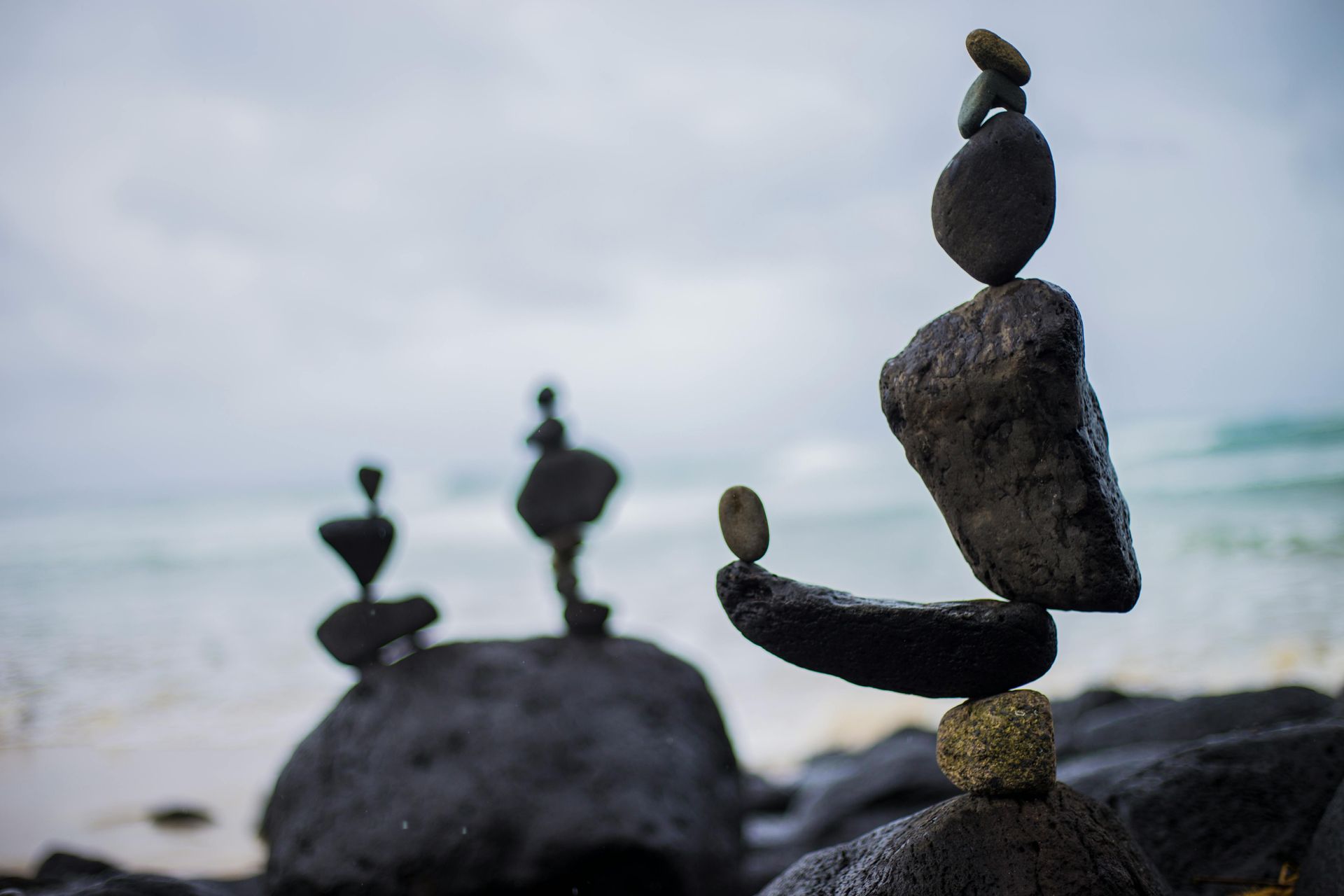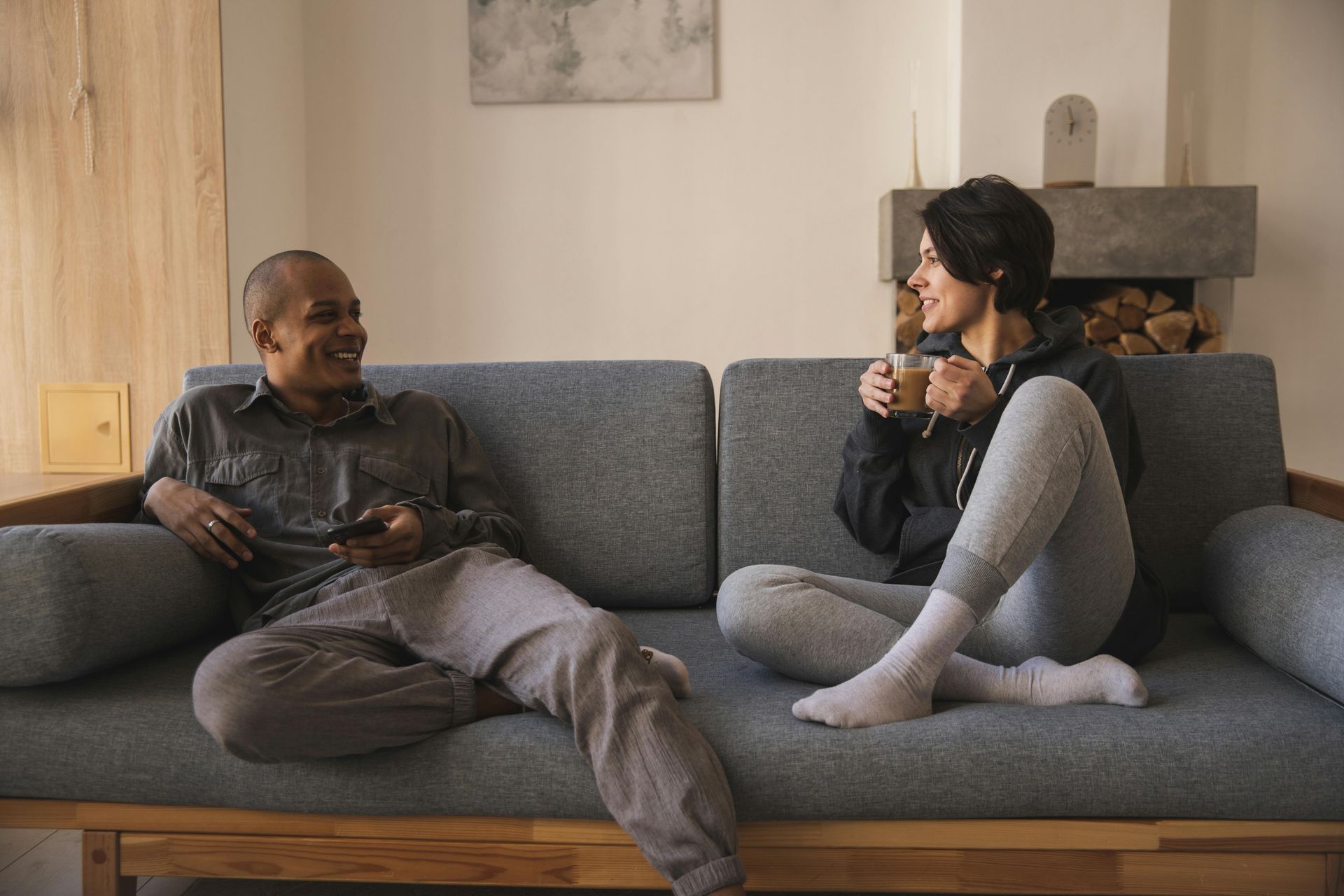Couples Counselling 101: 4 Ways to Be a Better Partner
Kathleen Maiman • November 14, 2019

Many people seek couples counselling
to try and understand how they can be a better partner. A relationship is more than just two people being together—it’s a commitment to being there for each other, working together through challenging times, and cherishing another person’s company.
But relationships can falter when that strong bond is neglected for one reason or another. Whether someone isn’t aware of how their actions are affecting their partner or a poor work-life balance is straining the relationship, it’s important to take the time to understand different ways you can be a better partner.
1. Develop a Good Sleeping Schedule
Getting a good night’s sleep is one of the most important things we can do for ourselves. When we’re rested, we’re better able to handle the daily challenges we face in our relationship. Sleep affects more than just your energy levels too. It impacts your mental alertness, mood, hunger, and glucose levels.
Bad sleeping habits can make you more irritable, emotional, and unable to cope with even the most basic tasks.
Everyone’s sleeping schedule is different. What’s important is that you figure out the right amount of sleep for you to feel rested.
2. Listen to What Your Partner Has to Say
Sometimes your partner just wants to be heard. This is even truer in relationships where one partner feels the other doesn’t listen enough.
You don’t have to agree with what someone says, but the simple fact that you’re listening to them and letting them vent their frustrations is what matters.
Remember, we all have our own unique approach to life. What works for you may not work for someone else. Try taking an empathetic approach to your relationship. Accept that your partner is different, that their approach may not work for you, and acknowledge that those differences are okay.
Relationships are built on compromise and understanding.
3. Show Appreciation (No Matter How Small)
It’s easy to get caught in the motions of a relationship. Simple tasks quickly become part of our routine, and we lose focus on the fact that someone has to complete them.
Each partner in a relationship will usually assume certain roles and duties. Showing a little appreciation can show your partner that you value what they are doing.
Saying thank you for something as small as arranging the wet winter boots after a long day can go a long way and make your partner feel appreciated.
Showing gratitude is linked to positive partner perceptions and is something that more couples could benefit from.
4. Focus on Spending Quality Time Together
One of the biggest complaints I hear during couples counselling is that partners don’t spend quality time together.
One partner will suggest that they do, while the other will say that it wasn’t a meaningful experience. Many couples think any time spent together is good. But taking a quantity-based approach may not be the best choice.
If you are planning to spend time together, focus on making sure it’s a quality experience. Find an activity that you both enjoy—that way—it will feel rewarding for both partners.
It’s okay to take part in your partner’s hobbies, but like anything in life, participation should be balanced for both partners.
Looking for the Answers to Your Relationship? Couples Counselling Can Help
Love of Attraction was founded by Registered Psychotherapist and Certified Imago Relationship Therapist Kathleen Maiman
to help couples analyze their relationships on the path to self-discovery.
Are you interested in couples counselling or attending one of our couples retreats? Please contact us today at 403.809.8282
to learn more.
Register for our Newsletter and receive a Free Love Chat Package
This Package Includes
- The 5 Steps to a Better Relationship
- Ongoing Monthly Relationship Tips
- If you want more love in your life, our relationship Love Chat Package is an easy cost-free first step.

The holidays can bring out the best and the worst in us. Between travel plans, family expectations, and endless to-do lists, even deeply connected couples and individuals can feel stretched thin. While this season promises joy and closeness, it also tests patience, communication, and self-care. Taking it easy—both with yourself and your partner and loved ones —can make all the difference.

In today’s digital world, screens have woven themselves into every moment of our lives. From the first scroll in the morning to the last glance before sleep: our phones and tablets are shaping how couples are spending time together. Just have a look the next time you go out to dinner and see the couple both sitting on their phone while waiting for their dinner to arrive. While this technology connects partners across distances, it can also subtly erode emotional intimacy when left unchecked. You are not alone if you’ve ever tried to talk to your partner while their eyes are glued to a glowing screen. In today’s world, screen time has quietly become the “third wheel” in many relationships.

When we first meet, we are the best version of ourselves. We take care of ourselves and show up as our best self. In the first few weeks and months of a relationship, we are on our A game. We dress up, plan dates, show up, have fun, we listen and we are in a good mood and say yes to new experiences and adventures. We a

When it comes to relationships—romantic, familial, or even friendships—there is an ongoing negotiation between what is true (facts) and what is felt (feelings). Both play vital roles in how partners connect, resolve conflicts, and build lasting trust. Understanding the balance between the two can mean the difference between constant misunderstandings and a relationship grounded in both honesty and empathy. Learning how to balance the two—without dismissing or overemphasizing either—can bring more peace, understanding, and intimacy.













